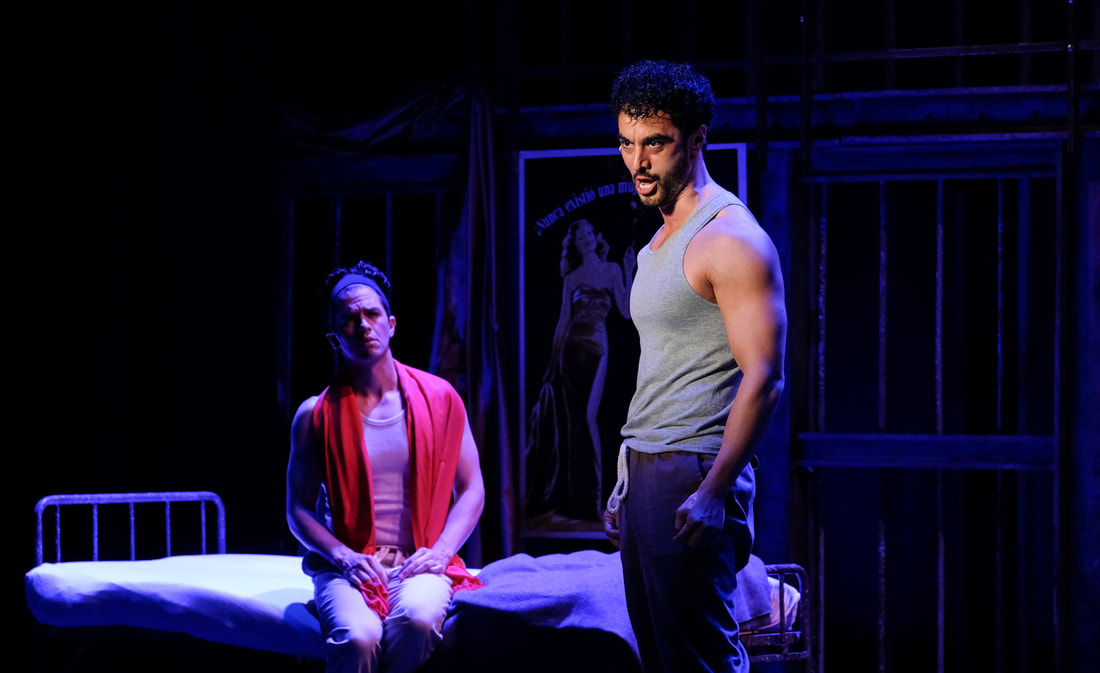|
Jeffrey Scott Parsons (left) and Richard Bermudez in "Kiss of the Spider Woman." Photo courtesy of Welk Resorts Theatre Argentinian novelist Manuel Puig probably had no idea what would spring from the publication, in 1976, of his largely stream-of-consciousness novel “”El Beso de la Mujer Arana,” or “Kiss of the Spider Woman.” Seven years later, the book would become a stage play, and two years after that a critically acclaimed film starring William Hurt and Raul Julia. But that wouldn’t be all. In 1993, “Kiss of the Spider Woman” was adapted into a Broadway musical, with a book by Terrence McNally and songs and lyrics by John Kander and Fred Ebb, the duo that gave the theater world Cabaret and, later, Chicago. The visceral and frank story of two men in a Latin American prison who are drawn to each other amid the torture and misery is now onstage at the Welk Resort Theatre, of all places, which is reminding its audiences that the material is “PC-17.” Having presented Cabaret at its darkest, which is how it was meant to be presented, a couple of years ago, staging Kiss of the Spider Woman is not as dramatic a leap for the Welk as you might think. Producer Joshua Carr deserves credit for the choice, as does Ray Limon for directing a production that is a little bloated but highly emotional and certainly gripping.
The Welk production of Kiss of the Spider Woman benefits from potent performances from its three leads. Jeffrey Scott Parsons is heart-rending as the gay prisoner Molina, who the guards love to humiliate. As the political prisoner Valentin, who becomes Molina’s roommate and more, Richard Bermudez shares with audiences a powerfully beautiful singing voice. As Aurora, the film star of Molina’s fantasies and also the titular Spider Woman, Natalie Nucci does what she does best: dazzle with her dancing. Some of those charged dance numbers feel right out of the Copacabana, clashing with the grim tone of McNally’s story, and the show’s title tune that Nucci renders sounds like a Bond-film theme song. But the agonized and often tender ballads in the score, which represent the softest moments of this occasionally brutal narrative, provide avenues for really caring about the fate of not only Molina and Valentin, but of anyone persecuted for what they believe in or who they are. (Review originally published in San Diego CityBeat on 9/27/17.)
0 Comments
Leave a Reply. |
AuthorDavid L. Coddon is a Southern California theater critic. Archives
July 2024
Categories |
David Coddon |
|
